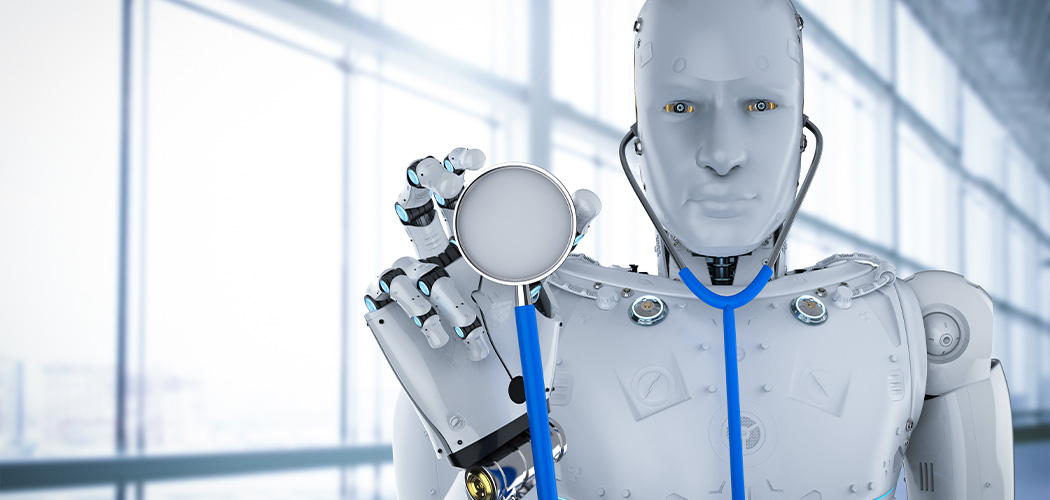Artificial Intelligence (AI) may be highly advanced and tireless, but it will never fully replace certain jobs that require qualities beyond software capabilities, such as empathy, a human touch, or the ability to make complex decisions.
At a time when jobs are being outsourced to robots, nurses cannot be replaced. This article delves into the reasons AI alone will never replace nursing.
Empathy
Empathy is the capacity to recognise and to some extent share feelings that are being experienced by another nurse is central to nursing. Nurses not only provide care but also help patients and their families emotionally. For a lot of people, this compassionate connection matters and can play an essential part in creating trust that makes patients feel cared about.1
Advanced algorithms or data processing does not enable AI to genuinely empathise. AI may seek to imitate empathy in programs, but it is not capable of experiencing human emotions and experiences. A nurse can provide that warmth and comfort a machine cannot.2
Ethical decision-making
Nursing makes some of the most complex ethical choices, and these decisions take place within human values, ethics and cultural background. Nurses can find themselves in the difficult position of balancing medical protocols with patient individual needs and wishes. The need to navigate between these decisions may not be clear-cut, and dependent on the individual patient.
As AI follows previous programmed algorithms it is unable to deal with these types of moral grey areas. The presence of human judgement and moral reasoning that characterises the practice is important in their conduct a hallmark of holistic patient.3
Patient care
Patient care is multifaceted and extends beyond medication administration/procedures. Physical, emotional, and social needs are reviewed by nurses who can alter care plans due to direct observation and interaction. This real-time personalisation is difficult for an AI to mimic. AI can monitor vital signs and help in the managing of medical records, but it will never be able to replace the critical thinking skills and adaptability that nurses demonstrate every day on their jobs. One hallmark of skilled nursing care is the capability to react to unforeseen changes in a patient’s condition and respond with prompt, knowledgeable choices.4
Human interaction
Human interaction is the foundation of our nursing practice. A caring nurse can offer reassurance and comfort at a time when the patient is feeling vulnerable, anxious or both. The nursing-patient relationship is built on communication, trust and mutual respect.5
As intelligent as AI is, it still lacks the ability to have a genuine human conversation. Body language, tonality and non-verbal cues are nuances that machines will never understand. Healthcare providers cannot lose what makes care effective by a technology platform. The human connection and interaction that nurses build with their patients is unique, important to the care they receive and not replaceable by tech solutions.6
Intuition and experience
Intuition and clinical experience inform the decisions experienced nurses make about patient care. This kind of acquired instinct, honed over time through practice, serves to help nurses spot small signs that a patient is deteriorating or improving.7 Whereas AI can process immense numbers of data sets, it does not have the hands-on experience necessary to use intuitive insight. This ability to predict ahead of time what can go wrong and intervene proactively is in the complexity territory that AI will not be able to mimic after considerable years caring for patients.8
AI can be useful for automating nursing tasks and providing data-driven insights, but it cannot replace the human elements that are central to nursing care.
AI lacks the ability to understand empathy, ethics, and the nuanced decision-making required in patient care – critical aspects that define the essence of nursing practice.
As technology continues to evolve, it is crucial to recognise and value the unique qualities that only a nurse can bring to the care of another person. While AI can serve as a valuable ally to nurses, it can never replace the deeply human element of compassion and connection in caring for others.
References
1. Lee S. Do we need more empathy? Nursing2020 Critical Care. 2018;13(5):5.
2. Murphy K. Human Resilience in Nursing: Why AI Can’t Replace Compassion. Employer Resource blog. 2024. https://prsglobal.com/blog/human-resilience-nursing-ai-cant-replace-compassion
3. Lorie B. Why AI Can’t Replace The Human Touch – Empowered Nurses. Empowered Nurses blog. 2024 May 16, 2024. https://empowerednurses.org/why-ai-cant-replace-the-human-touch/
4. Bottino B. Can AI Replace Nurses? Examining How Human Touch in Healthcare Can’t Be Replaced. Nurse.com blog. July 10, 2024, 2024. https://www.nurse.com/blog/can-ai-replace-nurses-nsp/
5. Wu Y. Empathy in nurse-patient interaction: a conversation analysis. BMC Nursing. 2021;20(1):18. doi:10.1186/s12912-021-00535-0
6. Robson D. The digital body language cues you send – or don’t send. BBC. 2021. Accessed 24 June 2021, https://www.bbc.com/worklife/article/20210617-the-digital-body-language-cues-you-send-or-dont-send
7. Van den Brink N, Holbrechts B, Brand PLP, Stolper ECF, Van Royen P. Role of intuitive knowledge in the diagnostic reasoning of hospital specialists: a focus group study. BMJ Open. 2019;9(1):e022724. DOI: 10.1136/bmjopen-2018-022724
8. Castro H. Why human touch matters in health care: the limitations of AI. KevinMD.com. 2023. Updated February 28, 2023 https://www.kevinmd.com/2023/02/why-human-touch-matters-in-health-care-the-limitations-of-ai.html
Author
Dr Ahmad Mousa RN PhD is a Nursing Lecturer at the Faculty of Health Sciences, School of Nursing, Nursing, Midwifery, Paramedicine, Oral Health Therapy, Curtin University – Western Australia








